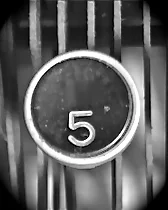5 HOT BOOKS: A Stunning Tale of Racial Injustice in the South, Woodrow Wilson, and More
/1. Beneath a Ruthless Sun: A True Story of Violence, Race, and Justice Lost and Found by Gilbert King (Riverhead)
In his Pulitzer Prize-winning Devil in the Grove: Thurgood Marshall, the Groveland Boys, and the Dawn of a New America, King unearthed a neglected chapter in the long struggle against racial injustice in America. In his stunning new book, also with the theme of miscarriages of justice under Jim Crow, King delves into the perverse 1957 case of four black men falsely accused of raping the white wife of a Florida citrus baron. With a masterful grasp of detail and an eye for narrative twists, King focuses not only on the defendants but also on the constellation of characters involved in this horrible saga: a mentally impaired white teenager coerced into a confession and sent to a home for the insane; the local sheriff, a Klan leader who brutalized and killed to get his way; and a fierce, unforgettable woman, a journalist who bucked trends of the time and persisted in her crusades against the sheriff and injustice.
2. The Moralist: Woodrow Wilson and the World He Made by Patricia O’Toole (Simon & Schuster)
While his admirers regarded Wilson’s deep, abiding sense of moral responsibility as a virtue and political asset, his critics regarded him as arrogant. “Both camps agree that morality was a conspicuous feature of his character and a hallmark of his presidency,” writes O’Toole in her Author’s Note. In her monumental biography of the 28th president, O’Toole traces the arc of Wilson’s career and the source of his moral conscience, which left a complex legacy, particularly involving fundamental questions about the expansion of American interests and power at home and abroad. O’Toole, author of robust, highly readable biographies of Theodore Roosevelt and historian Henry Adams, now delivers an insightful portrait of Wilson, whose expansion of presidential powers echoes loudly today.
3. War on Peace: The End of Diplomacy and the Decline of American Influence by Ronan Farrow (W.W. Norton)
Last week Farrow won the Pulitzer Prize for his reports in The New Yorker on the allegations of sexual assault against Harvey Weinstein, but before that, the Yale Law School graduate worked in Sudan for the United Nations and for the Obama administration as a special adviser in the State Department. He draws on that experience in this fascinating book, which is enriched by a wide range of experienced foreign policy experts such as Henry Kissinger and Colin Powell. Farrow argues that the United States’s influence is diminishing because America has shuttered embassies and abdicated its leadership role on the world stage, and he makes an urgent case for diplomacy as a way to prevent war.
4. How to Write an Autobiographical Novel: Essays by Alexander Chee (Mariner)
So many essays tend toward the opaque, while memoirs often founder on the shoals of trauma. But Chee transcends those boundaries and has written a magical book that is a joy to read. He blends closely observed details – say, his teacher Annie Dillard’s thermos of coffee and her Brach’s singly wrapped caramels, or the tasseled loafers worn by his Korean uncle – with his keen sensibility of social dynamics, from his perspective as a high school exchange student in Mexico to his working as a cater-waiter at a party held by the Buckleys. The passionate through line of this marvelous book is Chee’s dream of being a writer, and one moment in particular: Dillard encourages her students to aspire, to look where their books will appear on an alphabetized bookshelf, and the moment when Chee places his finger between Chabon and Cheever is unforgettable.
5. You Think It, I'll Say It: Stories by Curtis Sittenfeld (Random House)
Beginning with her debut novel Prep, Sittenfeld has distinguished herself as a writer who delves into the fault lines of race, class, and gender beneath the surface of ordinary life. In her first collection of short stories – several of which appeared in The New Yorker and were selected for Best American Short Stories – Sittenfeld zeros in on the snap judgments and subconscious biases that derail relationships. Donald Trump’s ascendance is often present in this collection of perfectly constructed, utterly engaging stories – a college professor’s fling with her airport shuttle driver, a volunteer at a shelter for mothers and children who can’t abide her bubbly new co-worker, a young mother obsessed with a celebrity – which generously capture this fraught moment in middle America.










